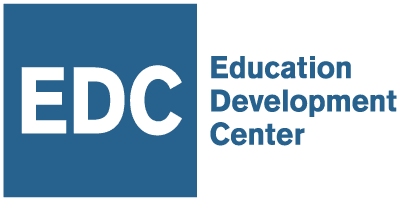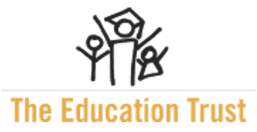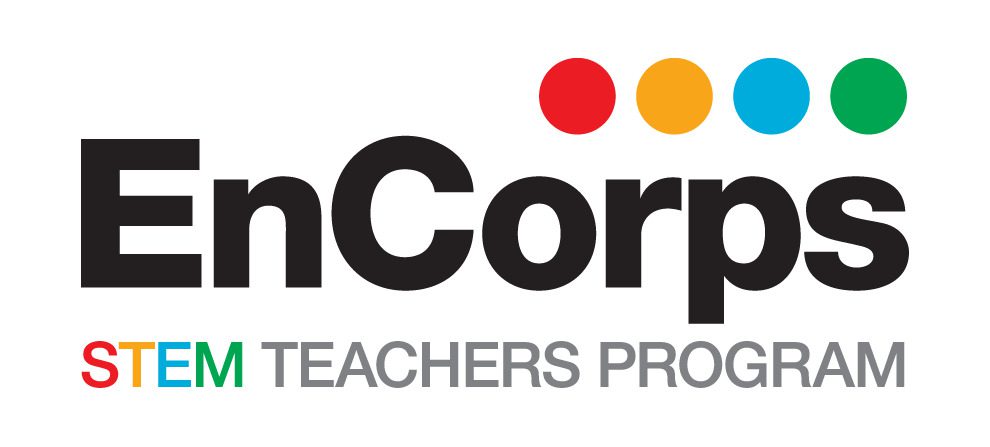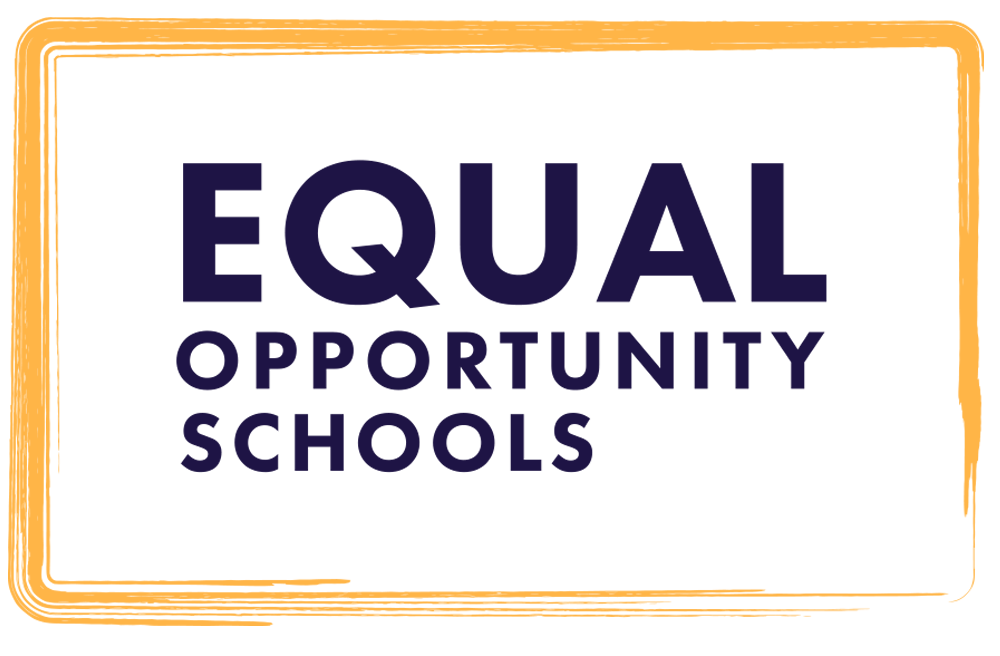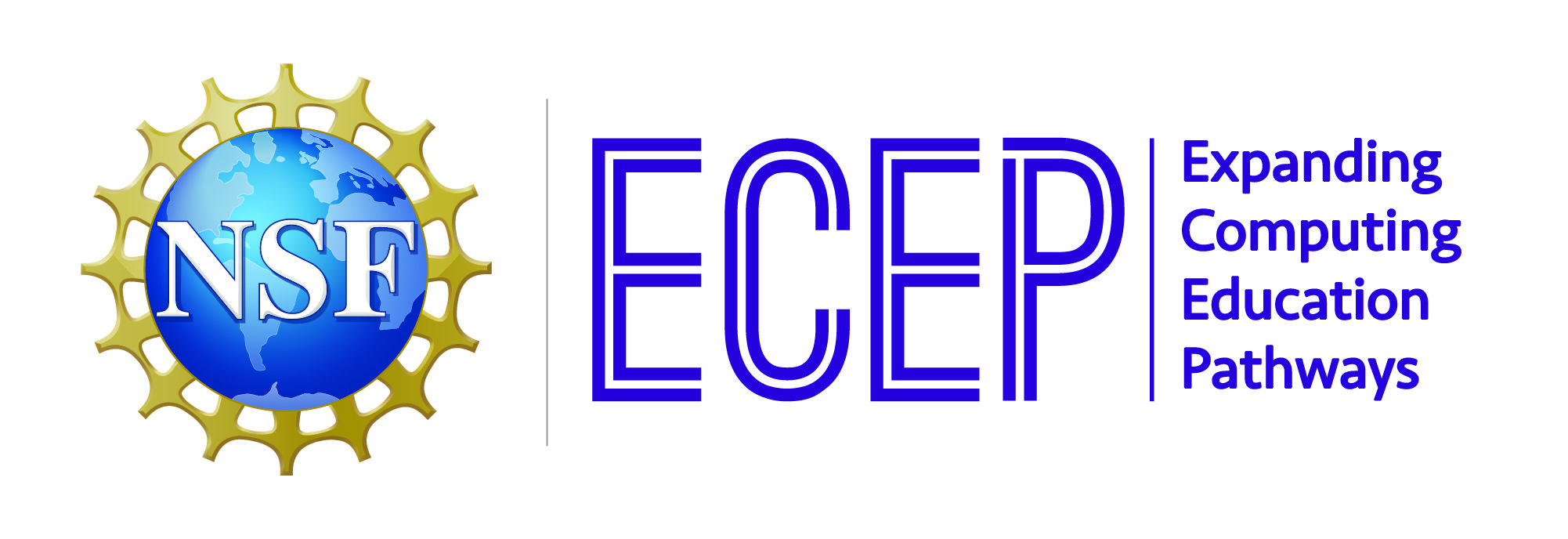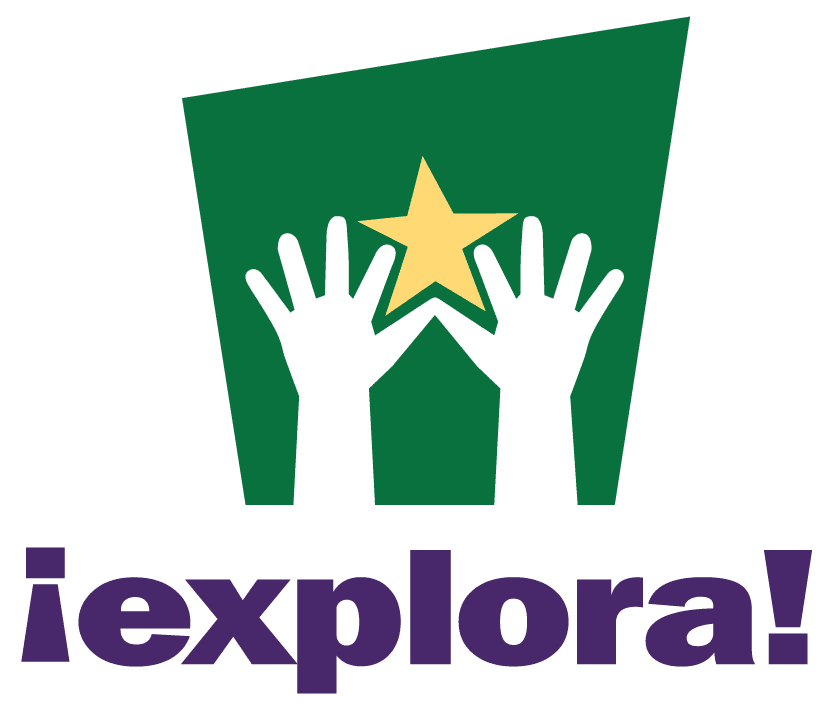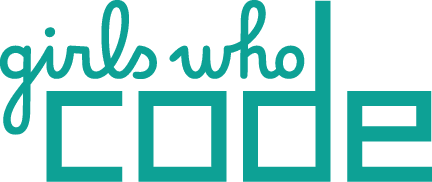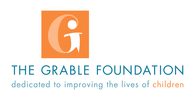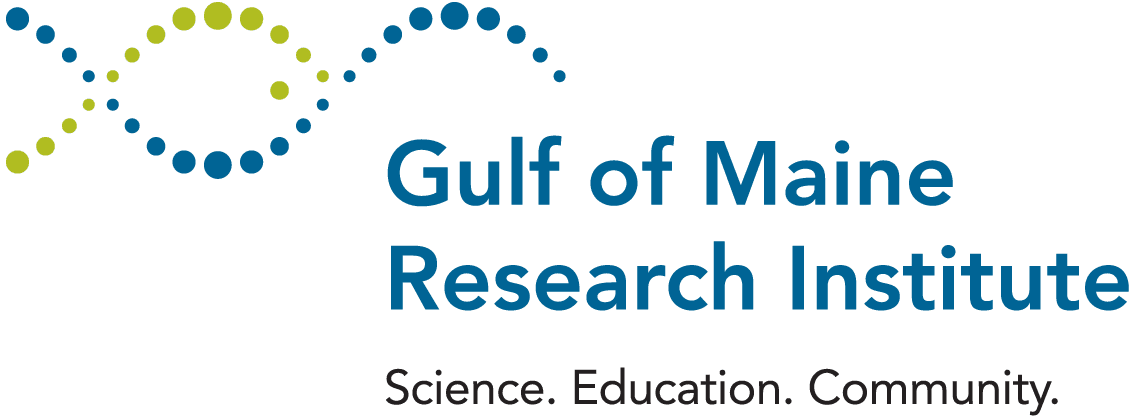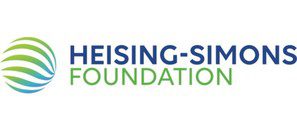Our Journey
In the last decade, we successfully prepared over 100K new STEM teachers who have helped strengthen and improve the field and our world. Over the next decade, we are looking to build on that progress by preparing and retaining 150K new STEM teachers who increasingly mirror the diversity of their school community, especially for schools serving majority Black, Latinx, and Native American students. We’lll support our network to foster workplaces and classrooms of belonging so that everyone we reach can see a path for themselves in STEM. And in the decade after that, we are hopeful that our commitment to this work will solve the STEM teacher shortage once and for all.

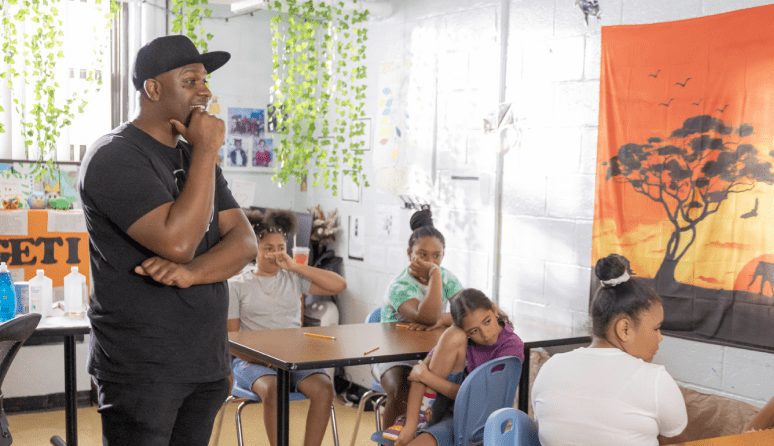
Our Journey and where we’re headed:
100Kin10
In 2011, we took up a call by President Obama to prepare 100K STEM teachers in 10 years alongside 28 partner organizations. By 2021, 300 organizations worked collectively to surpass our shared goal and we prepared nearly 110K excellent STEM teachers to the field. We did this by focusing our radical collaboration on:
Building a Network
of Diverse Stakeholders
Creating a Map of the System
Building tools for Making Progress
We support partners to succeed at their commitments and tackle the systemic challenges revealed by the map.
Collectively We Advance the Field
In 2021, Bellwether Education Partners conducted a third-party evaluation of our impact. They found that the network spurred five major advancements in STEM teaching and learning:
BETTER RECRUITMENT: 100Kin10 prep programs used improved strategies to recruit highly qualified STEM teacher candidates
IMPROVED PREPARATION: More STEM teacher candidates have access to evidence-based STEM preparation via 100Kin10 partners
EXPANDED EARLY STEM: 100Kin10 partner programs have increased emphasis on preparing and supporting elementary teachers with STEM skills, and in particular foundational math
ENHANCED PROFESSIONAL DEVELOPMENT: More teachers have access to quality STEM professional growth and collaborative work environments via 100Kin10 partners
MORE AUTHENTIC STEM: More teachers and students have access to meaningful, authentic, and rigorous STEM learning via 100Kin10 partners
GRAND CHALLENGES
The future of our country depends on today’s students becoming tomorrow’s innovators. We believe that young people have infinite potential and that when that potential is nourished in STEM classrooms, they will bring to life out of this world solutions to our biggest challenges. This is why we must tackle the underlying causes of our nation’s shortage of excellent STEM teachers. So we identified the 100 challenges to preparing and retaining great STEM teachers and created a roadmap that points the way toward transforming STEM education.
THE UNCOMMISSION
In 2021, nearly 600 young people shared their K-12 STEM experiences through a diverse, participatory storytelling effort called the unCommission. We knew their input was critical in order to identify action-ready considerations for the future of STEM learning and opportunity. Now, their voices are guiding our next chapter and goal on this journey to end the STEM teacher shortage with equity, representation, and belonging at the center of this work.


Our Next Shared
GOAL
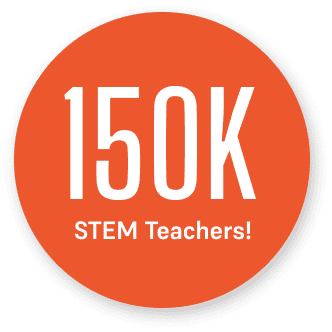
OUR NEXT SHARED
GOAL
STEM has never been more important to our future.
The people who will cure cancer and dementia, desalinate water, help us avoid future pandemics and solve challenges unknown or invisible are in our nation’s classrooms today. And, we cannot solve these challenges without ensuring those most under-represented in STEM are centered in the work ahead.
To achieve our next shared goal, we are relaunching and growing our network with an explicit focus on Black, Latinx, and Native American teachers and students. In order for students to succeed in STEM, they need to feel that they belong in STEM classrooms and careers. That’s why we’re preparing and retaining 150K teachers in STEM, with an explicit focus on creating a sense of belonging and equity in our classrooms, and beyond. And we cannot wait for you to join us.
Change requires all of us.
Radical collaboration among change-makers across industry and sector is the only way to effect real progress and move our world forward. Our role is to mobilize our network with a focused strategy, clarity of purpose, and vision for achieving change.
Together we can make momentous change in our world.
Education Development Center - Math for All
Commitment
The Math for All project at the EDC Center for Children and Technology will contribute to the retention of approximately 500 teachers and 150 teacher leaders working in approximately 75 high-need urban and rural schools by providing them with professional development and support to help them make high-quality, standards-based mathematics instruction accessible to students with different strengths and challenges, including those with disabilities. We define high-need as schools that serve more than 50% students who live in poverty.
The Math for All project at the EDC Center for Children and Technology will contribute to the retention of approximately 500 teachers and 150 teacher leaders working in high-need schools by providing them with professional development and support to help them make high-quality, standards-based mathematics instruction accessible to students with different strengths and challenges, including those with disabilities. Utilizing a school-based approach, fostering the collaboration between teachers (e.g., between general education teachers and specialists such as special education teachers, bilingual teachers), and providing individualized support to teachers and teacher leaders, our professional development strengthens school communities and teachers’ sense of preparedness to teach mathematics to students with different strengths and needs, and their sense of belonging.
The Education Trust
Commitment
By 2028, The Education Trust will advance policies and practices to diversify the K-12 STEM educator workforce, by building a national narrative that focuses on the aspirations and excellence of all students, especially students of color; conducting research on best practices and evaluating promising policies for recruiting, preparing, and retaining educators of color; forming partnerships and supporting coalitions to amplify views of equity-focused organizations and supplement our expertise; and elevating the voices of students, families , and educators of color to ensure those most affected are driving policies. As a result of these efforts, more students of color and students from low-income backgrounds will have access to a strong and diverse STEM educator workforce; rigorous, inclusive, and engaging STEM courses; and positive school climates that foster their belonging in and love of STEM.
Educational Service District 112 - Student and School Success
Commitment
Educational Service District 112 in Southwest Washington commits to recruit and train 65 STEM teachers through internal credentialing programs. By 2027, ESD 112 will work to ensure the demographics of teachers prepared will match the demographics of the students served. To do this, ESD 112 will partner directly with community affinity organizations, host events for families and students to learn more about career pathways in education and provide financial aid and training opportunities for prospective teachers. ESD 112 will also work to create conditions and enact policies that support increasing diversity of the teaching profession. Lastly, ESD 112 will partner with 30 school districts to create Education Career Readiness events that reach 50 high school students each year, particularly high school students who identify as students of color and students from rural communities.
ESD 112 will partner with Native American Community Advisory and Migrant Education services to develop and facilitate professional development for 60 pre and in-service teachers per year on culturally responsive pedagogy and curriculum. In addition, ESD 112 will develop a Community-based teaching practices framework to support this work and share with regional educational leaders.
EnCorps
Commitment
By 2027, EnCorps will recruit 1000 STEM professionals to transition to teaching into high needs schools. The State of California has awarded EnCorps funding to assist in our capacity to expand our program and recruitment reach–expanding our focus from Los Angeles, the Greater Bay Area and San Diego counties to include where we expect demand will increase: Riverside, San Bernardino, Sacramento, San Joaquin and Kern counties. We focus our recruitment and selection of high quality STEM professionals, our preparation, professional development and 100% of our placement of these professionals as pre-service teachers in schools with traditionally underserved student populations. The average demographics in our partner schools are 75% Hispanic, 7% African-American, 8% White, 8% Asian, and 2% other; 77% are not represented in higher education; 16% are ELL learners; and only 30% achieve math proficiency. Our vision is that all students regardless of socioeconomic status have a strong STEM foundation to help them navigate and be successful in an increasingly complex world.
EnCorps will continue to support 100+ EnCorps Full-time Teachers who continue to engage in EnCorps’ online and in person professional development events. Each year, EnCorps delivers three national events to all EnCorps Fellows in every state of the educator pathway. We currently engage 450 active educators with approximately 150 full-time teachers participating in our live-streaming Institutes or accessing our Google classroom sessions and other resources. The EnCorps Leadership Team maintains a goal of 85% 5 year teacher retention goal in Title I schools. for our EnCorps full-time Teachers. We believe that recruiting the right individuals, and training and supporting them, will ensure success with students and educators. EnCorps uses a culturally relevant educational model to support students in poverty and BIPOC students.
EnCorps’ Leadership Team maintains a recruitment goal of 50% of teacher candidates recruited in the current fiscal year identifying as people of color with a focus on Latinx and Black and African American STEM professionals. Direct recruitment efforts are made to Alumni Associations such as Apple Alumni Association, Harvard Alumni Association of Silicon Valley, Hewlett Packard/ Agilent Retiree Club, UC Berkeley Alumni Club, and UCLA Alumni Association. We also present to or post in newsletters with professional associations including International Society of Pharmaceutical Engineering, California Biomedical Research Association, National Society of Black Engineers, American Society of Civil Engineers, American Institute of Aeronautics and Astronautics, Society of Hispanic Professional Engineers, and Women in Data. Our corporate partners, in addition to providing funding, have also given us the opportunity to provide information and to conduct brown bag lunches and provide off-boarding materials for corporate HR departments and specific affinity groups.
EnCorps is committed to supporting student belonging in STEM. EnCorps’ recruitment, program orientation, training, and ongoing professional development are designed to build effective educator and student relationships using culturally appropriate tools and techniques.
Equal Opportunity Schools
Commitment
Equal Opportunity Schools commits to partner with schools and districts to strengthen educator and system leader capacity to break down barriers to increase participation, belonging, and success in rigorous college-and career-prep secondary school courses for students of color and low-income students. We will focus on the Cues and Conditions that students experience in class that facilitate or limit equitable opportunities to belong. By 2027, we will have surveyed over 250,000 historically underrepresented students of color and low-income students about their experiences of belonging in rigorous secondary school courses. These data will be shared with educators in action-oriented reports. We will also provide continued opportunities for educators and administrators to learn more about students’ experiences of belonging, reflect on their policies and practices, and plan actions for improvement. By 2027, we will have provided data and educational opportunities to educators and administrators from over 500 schools.
Erikson Institute Early Math Collaborative
Commitment
By 2027, we will create a new video series, hosted on our website, that features examples of young children of color (Black, Latinx, Asian, other as available) doing math activities. Our website is already used to support early childhood teacher preparation around the world, and we will use our newsletter (15,000 subscribers) to publicize the new video series. We will publish at least 15 such videos, focused on number, pattern, shape, and other foundational math topics. Being able to study these videos will help future teachers create classrooms where young children of color are seen as both learners and doers of math, capable of productive struggle and brilliance.
ExpandEd Schools
Commitment
ExpandED Schools will support formal and informal teachers to develop the skills and mindsets to foster belonging in STEM classrooms with a focus on the needs of Black and Latinx students in NYC by 1) training 90 educators per year in culturally relevant STEM practices, 2) engaging 10 educators per year in authentic youth/adult partnerships to drive programmatic changes at the school-level, and 3) co-creating 10 culturally relevant lessons with BIPOC educators from the program, which will be available to at least 90 educators annually.
Expanding Computing Education Pathways (ECEP) Alliance
Commitment
The ECEP Alliance will work with 30 state and territory teams over the next five years to increase the capacity of state systems to broaden participation in computing through teacher pipeline development, equity-centered planning, and cross-state collaboration. Specifically, ECEP will support these teams in strengthening recruitment and retention pathways for computing teachers of color, including Black, Latinx, and Native American educators, and in creating ecosystems that foster belonging in computing classrooms. Additionally, ECEP will work collaboratively with states to build data systems for evaluating and tracking who is teaching CS, in order to identify gaps in access to qualified educators or students, and to build strategies in states for growing diverse teacher capacity in CSEd. This work will influence statewide efforts impacting at least 3,000 teachers and 100,000 students, with progress tracked through disaggregated data, new or enhanced pathways into teaching, and evidence of inclusive instructional practices that improve student experience and representation in computing.
Explora!
Commitment
Explora will contribute to increasing the retention of STEM teachers who primarily serve Black, Latinx and Native American students by providing professional development opportunities and building a community of educators. Explora will serve more than 4,000 teachers by 2027 (1000+ teachers per year). Explora’s work supports teacher retention through building teacher confidence and self-efficacy to foster STEAM learning through hands-on, materials rich, and project based learning workshops that build upon the knowledge and skills the teachers have already. We incorporate Culturally and Linguistically Responsive practices into the workshops by using literature and stories as a way to link STEAM to Native interests and experiences. These stories provide opportunities for educators to make science connections in the everyday lives of their students and strengthen students’ ability to see themselves as capable STEAM learners. Workshops also include time for participants to tap into the collective wisdom of the group to develop lesson plans/activities while receiving feedback for developmental/cultural appropriateness. Explora works across all counties and school districts in New Mexico. Explora’s partner school districts primarily serve Black, Latinx and Native American students and include Albuquerque Public Schools, Santa Fe Public Schools, Espanola Public Schools, Los Lunas Public Schools, Belen Public Schools, and a number of tribal schools.
By 2027, Explora will contribute to increasing the retention of 10 Black, Latinx, and Native American STEM teachers by lifting up the many ways STEM in embedded in our community and many faces of people who do STEM so individuals can see themselves as someone who does STEM and that is STEM is for them.
By 2027, Explora will commit to facilitating programs and supporting 1000 teachers to provide opportunities for 80,000 students to see where STEM is happening in their everyday lives and that STEM is part of who they are and what they do. Through work collectively with partners we are able to broaden the idea of who does STEM, communicate that STEM is part of the community, and provide a network of the many ways and people who are engaged in STEM thus providing opportunities for relationships and connections to be built which make a difference in teacher and student belonging. Explora will continue to partner with schools and community partners that primarily work with Latinx and Black students to leverage collective strengths to broaden the idea of who can and who does do STEM, via collaboration on programs such as afterschool STEM and robotics clubs that utilize Explora space and resources. Explora will also continue to work with Native American tribes in New Mexico to provide professional development for staff, STEAM kits for student use, and student programs–which has recently been called out as an exemplar for advancing diversity, equity, accessibility, and inclusion. Explora staff have also been invited to be part of community school councils for a number of schools that primarily have student populations that are underrepresented in STEM fields. Being part of these councils provides opportunities for learning about how to best support students and staff.
By 2027, Explora will commit to being a community hub that brings more than 500 teachers together from across the state of New Mexico to learn and share together. Through work collectively with partners we are able to broaden the idea of who does STEM, communicate that STEM is part of the community, and provide a network of the many ways and people who are engaged in STEM thus providing opportunities for relationships and connections to be built which make a difference in teacher and student belonging.
Exploratorium
Commitment
By 2027, the Exploratorium Educator Engagement division K-12 Team will be providing professional support to at least 2,400 leaders in science education in every county across the state of California, composed of 1,000+ new leaders and retaining the 1,400+ active members of our statewide alumni network. By 2027, the Exploratorium Educator Engagement division K-12 Team will be providing professional support to a network of leaders in science education who are more representative of the teachers and students in public-schools in the state of California than ever before. In particular, we expect all of the leaders in our 2027 leader network to serve teachers and students who are marginalized or excluded from systems of privilege and at least 85% of them to identify themselves as such. Additionally, by 2027 we expect all leaders in our network to serve Title I public school teachers and at least 85% of leaders to serve Title I public school teachers exclusively. Collectively, by 2027 we expect the leaders we serve will be providing professional learning, mentoring, and advocacy support directly to more than 8,000 California elementary and secondary science teachers that will be predictors of teachers’ expected and actual retention in the profession. We support existing, emerging, and unexpected leadership in science education, defined by science educators, leaders, and Leaders from within and outside of the K-12 classroom.
Fort Hays State University
Commitment
By 2027, Fort Hays State University will prepare a total of 1895 STEM educators focusing on the needs of rural schools. To do this, we will work closely with community colleges situated in rural communities, with an emphasis on Latinx and Black students, to provide information about becoming a STEM Teacher (e.g. Get Out the Facts, locally produced marketing items). The goal is to bring teacher candidates to the university, prepare them for STEM teaching, and provide support for teaching in a rural area. We will also work with a regional service center in southwest Kansas to connect directly with K-12 schools to identify potential community members with an interest in STEM teaching and develop placement and retention strategies for program completers.
Fort Hays University is focused on teacher recruitment and preparation specifically to support STEM teachers in rural schools. We plan to develop and implement community building between the university and the districts where they teachers are placed and to provide a specialized course for STEM teaching in rural schools, conference travel, membership with active involvement in a STEM Educators student group, and service projects related to STEM Education. Additionally the students are required to participate in a week long rural field experience where they collaborate daily with each other on the experience. Fort Hays State University also holds an annual “Noyce Summit, “”which includes attending professional development, connecting with the Kansas State Department of Education STEM Program Managers, and receiving support for issues related to thriving as a teacher in a rural community.
Fort Hays State University will reach out through university clubs (Black Student Union and Hispanic American Leadership Organization) and our institutional recruitment efforts for transfer students and high school recruitment (e.g. Hispanic Institute) and to build an awareness of STEM teaching as a viable career for Black and Latinx students. This would also designate funds within the college and our supported projects to provide scholarships as an inducement to become a STEM major and a STEM teacher.
The Franklin Institute
Commitment
By 2029, The Franklin Institute (TFI) will support 3,000 formal, informal, and out-of-school time educators to teach students to think scientifically, provide opportunities for students to engage in authentic STEM experiences, and cultivate learning communities of STEM belonging with a focus on the needs of Black, Latinx, and Native American students. By providing facilitation training and resources such as curricular supports, teacher-facing reflection and planning tools, and frameworks that scaffold spontaneous scientific support in the classroom, TFI will thoughtfully bridge the gaps between classroom instruction and afterschool/summer engagement with supports that have been built with and for educators. This commitment will increase the number and quality of STEM experiences for thousands of students in Philadelphia and in communities across TFI’s national networks.
Fresno Unified School District
Commitment
Fresno Unified is committed to providing highly effective teachers for every classroom where students thrive. By 2027, Fresno Unified will recruit, train and employ a total of 483 teachers in elementary, secondary and special education with an emphasis on increasing staff that reflects the diversity of the community we serve. All aspiring teachers will participate in a Summer STEAM Camp. Throughout the STEAM Camp experience, participants will engage in daily co-planning, professional learning communities, and ongoing coaching support to strengthen teacher agency and efficacy through feedback. Fresno Unified will recruit and train a total of 500 High School Students to participate in the Teacher Academy which has a focus of teaching Science to elementary students.
GeoCivics, Department of Geography and Environmental Studies, University of Colorado Colorado Springs
Commitment
By 2027, we will increase the number of underrepresented educators who have been exposed to the power of geospatial technology tools in the context of electoral redistricting, engaging with at least 150 individuals in schools through professional development activities. These geospatial technology tools provide educators opportunities to connect students with their communities as they analyze and disseminate information about the composition of their electoral districts at the federal, state, and local levels, demonstrating that STEM can both educate and empower individuals and groups in the governance process.
By 2027, we will increase the number of underrepresented educators who have been exposed to the power of geospatial technology tools in the context of electoral redistricting, engaging with at least 150 individuals in schools through professional development activities. Anecdotal stories and evidence based on career trajectories suggest that once GIS tools are in the hands of students, they are able to incorporate them into open-ended projects and activities, often with clear connections to community issues. However, the main barrier to using these resources is that teachers are not familiar with the tools, so they are not able to share them with students. Students who can see connections between work in their classrooms with other parts of their lives, which can happen through geospatial technology, will develop a stronger sense of belonging in the classroom.
Girls Who Code
Commitment
Girls Who Code commits to support teachers in cultivating a sense of belonging in their STEM programs: By 2027, we plan to partner with key departments of education, school districts, library networks, and other non-profit organizations to launch over 10,000 Girls Who Code Clubs serving a total of 120,000 3-12th graders, including 50% from historically underrepresented groups in tech (Black, Latinx, Indigenous, and low-income). We will provide our Clubs curriculum, Facilitator training, resources, swag, and funding to teachers, librarians, and community leaders at no cost. Our comprehensive program offering allows educators regardless of computer science experience to 1) prepare more girls and non-binary students with a strong coding foundation, 2) increase diverse representation in STEM programming to change the image of what a programmer looks like and does, and 3) host a holistic program that offers social-emotional growth and community-building to ensure persistence in the field.
Gulf of Maine Research Institute
Commitment
GMRI will work alongside community-based partners to reimagine what culturally and locally relevant, data-rich climate and STEM learning can look like. We will co-develop resources and associated professional learning experiences that create space for learners (and others from the community for whom the term “expert” is rarely applied) as founts of relevant knowledge and experience. We will conduct learning experiences for 300 in- and out-of-school educators and support classroom teachers to leverage out-of-school learning as a means to both build and connect with culturally compelling models of STEM learning.
GMRI will collaborate with community-based partners to foster workplaces that prioritize a sense of belonging for teachers of Wabanaki, immigrant/refugee, and rural youth in Maine. 140 teachers, librarians, and informal educators will participate in 7 connected learning ecosystems (CLEs) that evolve into trusted peer communities. In so doing, CLE educators will experience a sense of belonging to a community of local peers as well as a statewide network, both committed to demonstrating the relevance of STEM for local youth and communities.
The Henry Ford, Invention Convention Worldwide
Commitment
By 2029, The Henry Ford will give 25,000 PK-12 educators access to free educational resources through inHub, a free online learning community and platform built by educators for educators. Through inHub, educators will have access to STEM classroom resources and professional development that they can use to cultivate classrooms of STEM belonging with a large focus on the needs of Black, Latinx, and/or Native American students. The Henry Ford will also build national teacher participation in Invention Convention Worldwide, a free project-based K-12 invention education program, offer culturally responsive professional development, and use the Innovation Atlas to assess the greatest needs across the country. As a result of these efforts, educators will gain access to resources and support needed to implement new, culturally responsive, student-centered teaching practices in their classrooms, such as invention education, and will form professional learning communities in every state across the country to exchange ideas. In turn, more than 500,000 K-12 students will be able to see themselves as changemakers in the world and will build key skills that they will need throughout their lives, such as problem identification, project management, and critical thinking.

